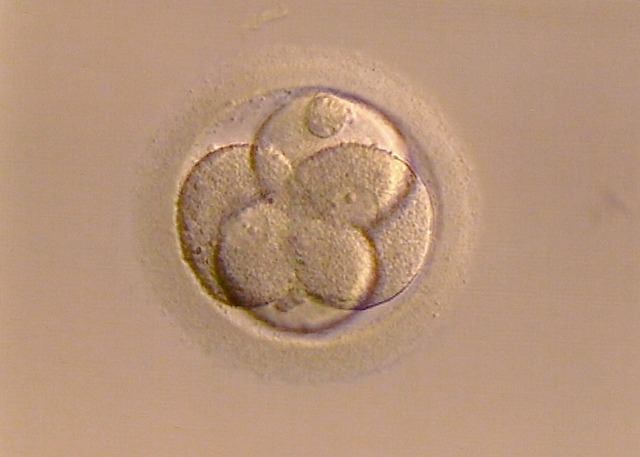A Closer Look at the Human Gene Editing Lab
By Karla Lant,
Futurism [cites CGS' Marcy Darnovsky]
| 08. 21. 2017
As the scientific community takes in the work of the team who edited the DNA of the human embryos this month, different opinions about the safety, efficacy, and potential of the technique abound.
THE GENE EDITING PROCESS
In a lab at Oregon Health & Science University, biologist Shoukhrat Mitalipov and a team of experts have been exploring and learning how to edit the DNA in human embryos efficiently and safely. This month, they announced their successful edit and correction of a mutation which causes a heart condition that can be fatal — hopefully the first landmark step of many on the road to preventing thousands of genetic diseases with editing.
To edit an embryo, a researcher will begin by taking a human egg and monitoring it on a computer screen. They will then inject, with a pipette, donor sperm and CRISPR, microscopic chemical sequences that act as a gene-editing tool, that is designed to make the precise desired edit. CRISPR then goes to work, slicing the target defect from the DNA. After this editing process, the scientists place the embryos...
Related Articles
By David Jensen, California Stem Cell Report | 02.10.2026
Touchy issues involving accusations that California’s $12 billion gene and stem cell research agency is pushing aside “good science” in favor of new priorities and preferences will be aired again in late March at a public meeting in Sacramento.
The...
By Alex Polyakov, The Conversation | 02.09.2026
Prospective parents are being marketed genetic tests that claim to predict which IVF embryo will grow into the tallest, smartest or healthiest child.
But these tests cannot deliver what they promise. The benefits are likely minimal, while the risks to...
By Mike McIntire, The New York Times | 01.24.2026
Genetic researchers were seeking children for an ambitious, federally funded project to track brain development — a study that they told families could yield invaluable discoveries about DNA’s impact on behavior and disease.
They also promised that the children’s sensitive...
By Arthur Lazarus, MedPage Today | 01.23.2026
A growing body of contemporary research and reporting exposes how old ideas can find new life when repurposed within modern systems of medicine, technology, and public policy. Over the last decade, several trends have converged:
- The rise of polygenic scoring...




